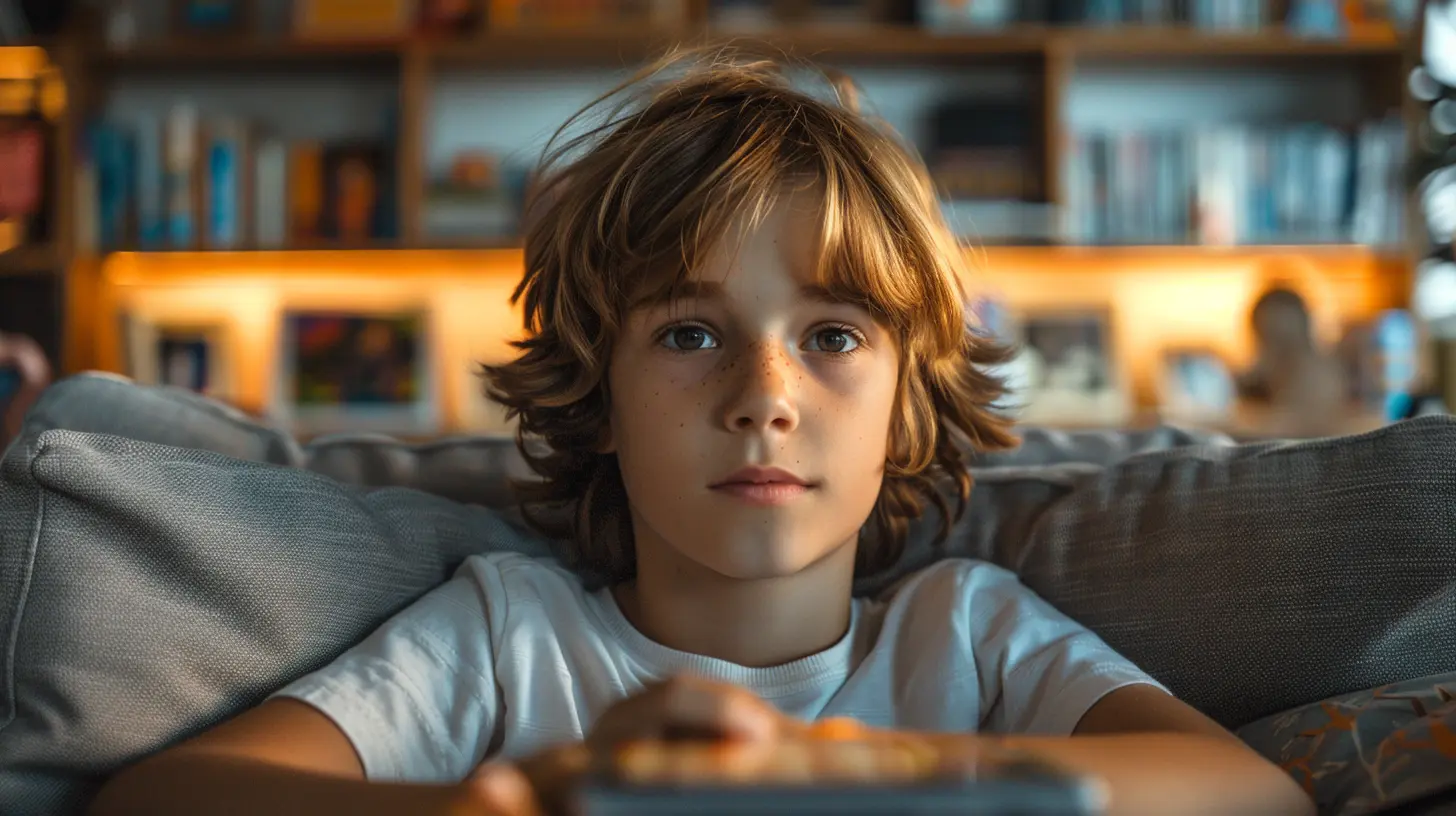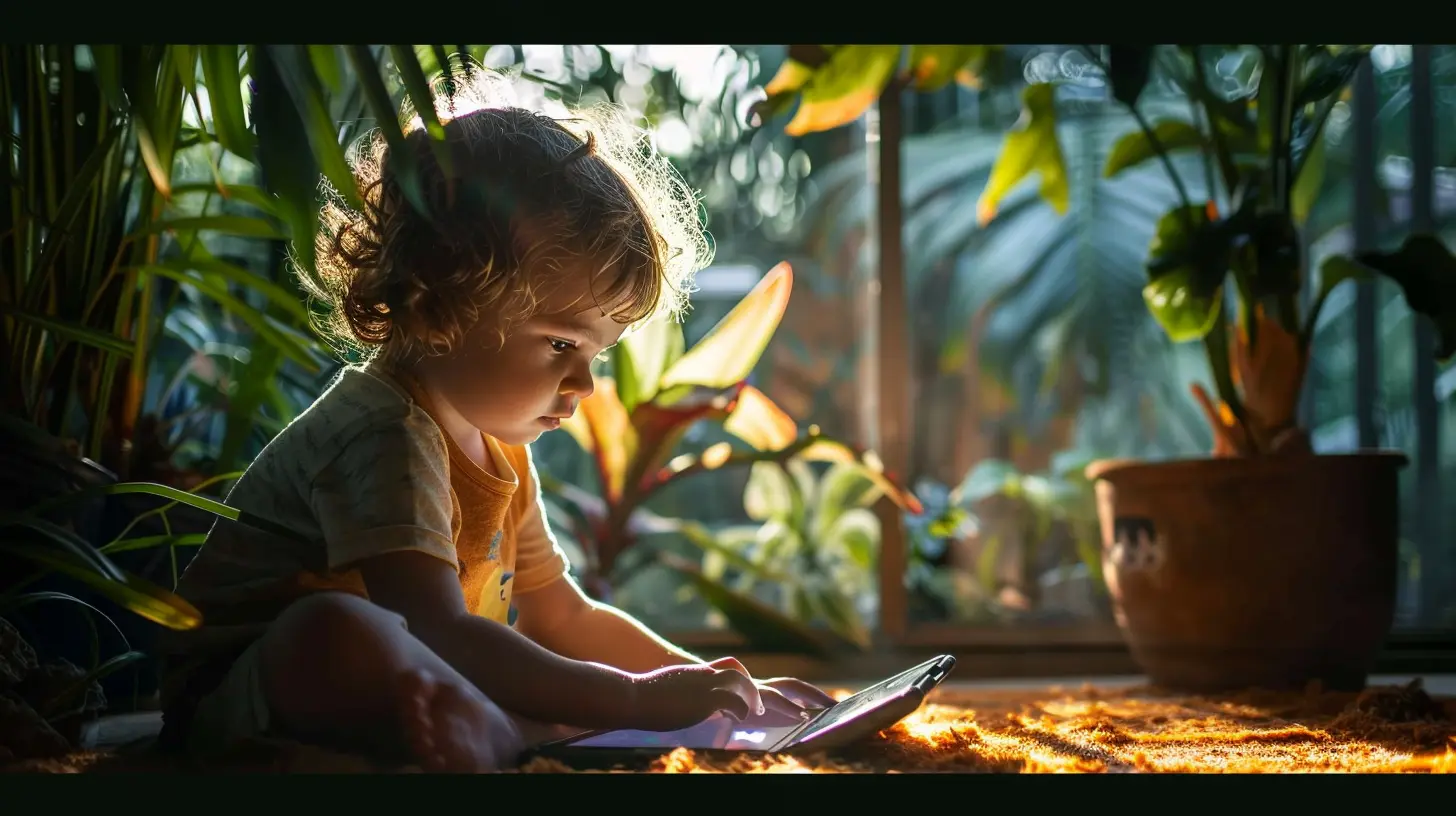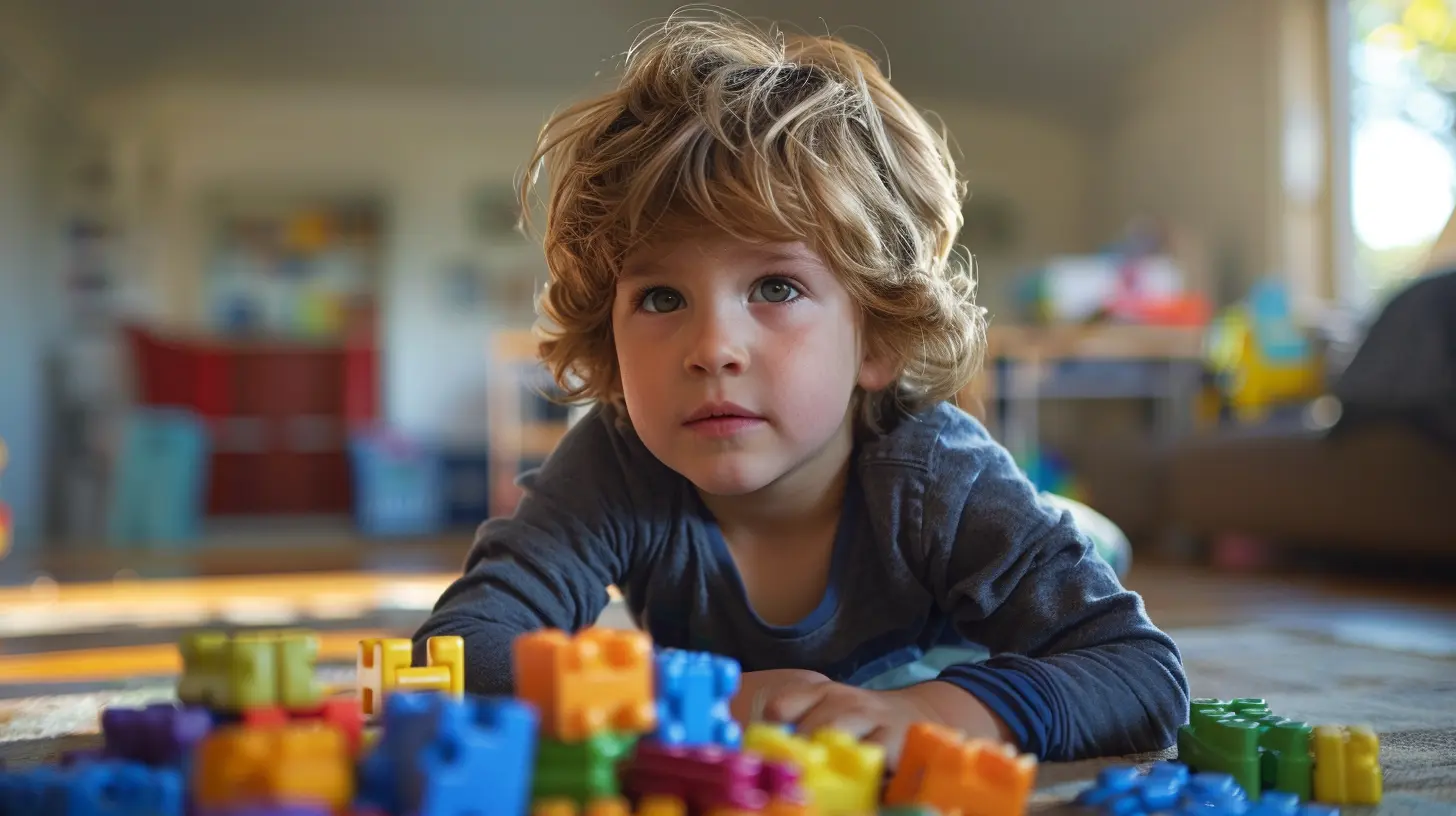Screen Time Alternatives: Encouraging Active Play and Creativity
3 August 2025
Let’s be honest — screens are everywhere. From tablets and smartphones to TVs and laptops, it seems like our kids are constantly glued to some kind of device. While screen time isn’t all bad – hey, educational apps and a little downtime are totally okay – too much of it can leave our kiddos missing out on some seriously important parts of childhood.
You might be wondering, “But what else can my child do?” That’s what we’re here to talk about. In this article, we’re diving into fun, meaningful, and practical screen time alternatives that boost creativity, encourage movement, and bring back good old-fashioned play.

Why Cutting Back On Screen Time Matters
Before we jump into the alternatives, let’s talk about why it's important to turn off the screens sometimes. When kids spend hours watching videos or playing games, their brains chill out a little too much. They’re not engaging their hands, hearts, and imaginations like they do during active play.Too much screen time can lead to:
- Poor sleep
- Reduced attention span
- Difficulty socializing
- Lack of physical activity
- Increased anxiety or irritability
Not exactly the recipe for a thriving child, right? But here’s the good news: there are so many ways to keep your child entertained, active, and learning that don’t involve screens at all.
Let’s get into it!
1. Get Outside and Let Nature Do Its Magic
Nothing beats the great outdoors. Fresh air, sunshine, a patch of dirt — it’s the ultimate playground. Whether it's a backyard, a local park, or a simple nature trail, outdoor play encourages physical movement, curiosity, and independence.Ideas for Outdoor Play:
- Scavenger Hunts: Make a simple list (like “find a pinecone” or “spot a butterfly”) and head outside.- Treasure Digs: Hide small toys in a sandbox or garden for them to find.
- Nature Crafts: Collect leaves, rocks, or twigs to create cool art projects.
Kids don't need fancy equipment — a stick becomes a sword, a pile of leaves is a dragon’s den, and puddles? Instant adventure!
2. Bring Back the Magic of Pretend Play
Do you remember when a cardboard box could be a spaceship, a castle, or a race car? That’s pretend play — the unsung hero of childhood development.Pretend play helps kids:
- Solve problems
- Develop empathy
- Use language in creative ways
- Build confidence
Pretend Play Activities:
- Dress-Up Box: Old clothes, hats, purses, and props make for endless role-playing.- Puppet Shows: Grab some socks and googly eyes and let your kids put on a performance.
- Play Kitchen or “Store”: Let them be the chef or cashier while you’re the customer.
You’ll be amazed at how long kids will stay engaged when they’re in charge of the story.
3. Set Up a DIY Art Studio at Home
If your child tends to reach for the tablet when they're bored, try swapping it with an art bin instead. Art is an awesome way for kids to process emotions, explore ideas, and just have fun making something from nothing.What's in a Good Art Bin?
- Crayons, markers, colored pencils- Paper of all kinds (construction, tissue, cardboard)
- Glue sticks, scissors, washi tape
- Stickers, pom-poms, pipe cleaners
- Recycled materials like egg cartons or cereal boxes
Encourage the mess. Encourage the weird ideas. Who knows? You might end up with the next Picasso.
4. Encourage Movement Through Dance and Music
Get those bodies moving! Physical activity doesn’t always mean organized sports. Kids naturally love to dance, stretch, twirl, and jump when given the chance.Ways to Get Moving:
- Dance Parties: Put on a playlist and shake it out in the living room.- Freeze Dance: When the music stops, freeze in a silly pose.
- Musical Chairs or Movement Games: Classic games still hold up!
Got instruments? Even better. Let the noise rule for a bit. It’s all part of the fun (just maybe invest in earplugs for yourself).
5. Build Together — One Block at a Time
Tactile building toys like LEGO, wooden blocks, or magnetic tiles are like gyms for the brain. They help with spatial awareness, fine motor skills, and creative thinking.Try These Building Activities:
- Challenge Builds: "Can you build the tallest tower?" or "Make a bridge for your toy cars."- Story-Based Construction: Build a scene from a favorite book or movie.
- Family Build Projects: Create a whole town together, complete with roads and buildings.
Bonus? It’s screen-free quiet time that keeps their hands and minds busy.
6. Cook or Bake Together
Cooking with kids isn't just about getting dinner on the table — it’s a life skill, math lesson, and creative outlet wrapped into one.Kid-Friendly Cooking Ideas:
- Make-your-own pizza night- Decorating cupcakes or cookies
- Simple no-bake snacks (like trail mix or yogurt parfaits)
Let them stir, pour, sprinkle, and taste — it’s messy, sure, but it’s also magic.
7. Create a Cozy Reading Nook
Books are the original portals to other worlds. And they’re way better for developing language and imagination than any TV show.Reading Tips:
- Let them choose what they want to read (yes, even comics!)- Make it interactive — do voices or let them "read" to you
- Re-read favorites — repetition builds confidence
You can even make reading time a special bonding ritual before bed or during quiet afternoons.
8. Host a Family Game Night
Pull out the board games, card decks, or even a good old-fashioned puzzle. Games teach kids about rules, patience, strategy, and sportsmanship (yep, even if they don’t like losing).Game Night Ideas:
- Board Games: Candy Land, Uno, Guess Who?- DIY Games: Make your own Bingo or Memory game using family photos.
- Physical Games: Charades, Simon Says, Twister
Make it silly, keep it light, and maybe add some popcorn to sweeten the deal.
9. Schedule Unstructured Free Time
Here’s a weird but wonderful idea — let them be bored.That’s right. Boredom isn’t the enemy. In fact, it often leads to the most creative breakthroughs. When kids don’t have screens or structured activities to fall back on, their brains start doing something amazing: they create.
Maybe they’ll build a fort, write a story, make up a game, or play with toys they haven’t touched in weeks. Trust that giving them a little space leads to big ideas.
10. Set Screen-Free Challenges for the Whole Family
If ditching the screen is feeling like a punishment, flip the script. Turn it into a challenge the whole family takes on together.Challenge Ideas:
- Screen-Free Sundays: One full day without devices.- Creativity Jar: Pull a fun screen-free activity from a jar when someone says, “I’m bored.”
- Reward Systems: Earn screen time by completing creative or physical tasks.
Lead by example. If your kids see you scrolling less and engaging more, they’ll follow your lead.
Balancing Act: It’s Not All or Nothing
Now, we’re not saying screens are evil. They’re part of modern life, and they’ve got their perks (hello, FaceTiming grandma or using a math app). The goal here isn’t to ban screens, but to balance them.Think of screen time like dessert. A little bit is fine, but you wouldn’t want it to be the main course.
So keep it flexible, stay consistent, and above all — have fun with it. Your child’s imagination, body, and heart will thank you.
Final Thoughts
Parenthood isn’t easy, especially when screens seem to be the easiest way to keep kids quiet or entertained. But the truth is, there are dozens of engaging, meaningful, and fun alternatives that can offer your child way more than a few hours in front of a tablet.Active play and creativity aren’t just “nice-to-haves” — they’re essential ingredients for your child's growth. They build life skills, emotional maturity, and help create memories that far outlast the latest YouTube video.
So next time your child reaches for the screen, reach for one of these ideas instead. You’ve got this — one unplugged moment at a time.
all images in this post were generated using AI tools
Category:
Limiting Screen TimeAuthor:

Steven McLain
Discussion
rate this article
1 comments
Tabitha Jenkins
What a fantastic read! Encouraging active play and creativity is so vital for our little ones. Thank you for sharing these wonderful alternatives to screen time—can't wait to try them!
August 13, 2025 at 2:24 PM

Steven McLain
Thank you for your kind words! I'm glad you found the alternatives helpful. Enjoy exploring them with your little ones!


